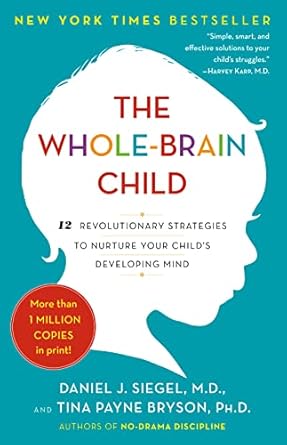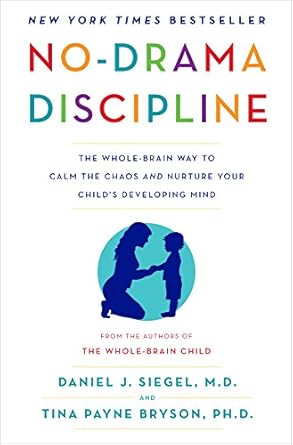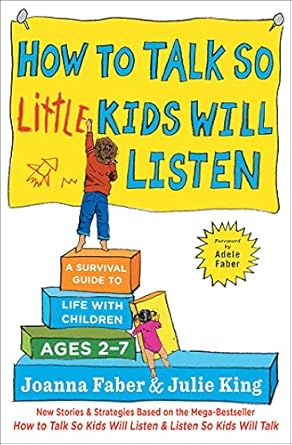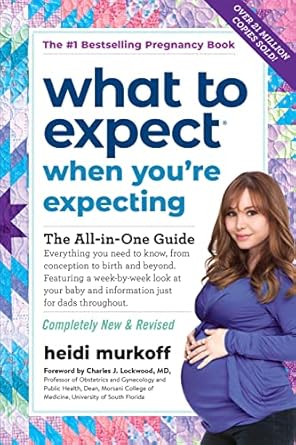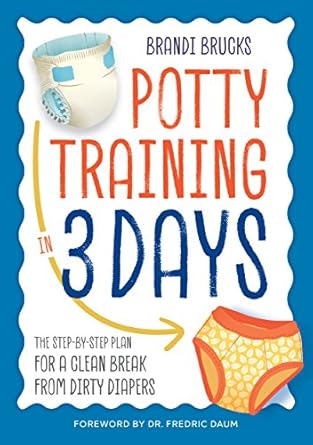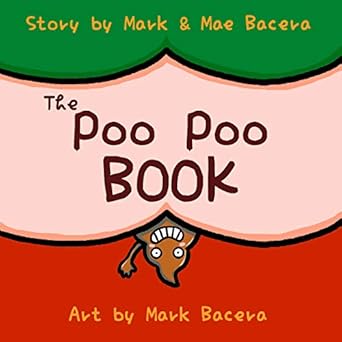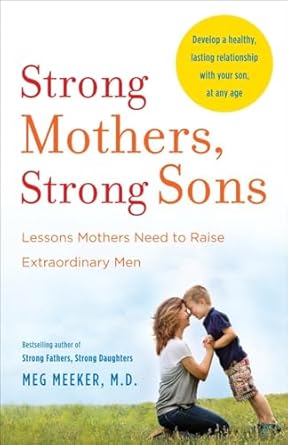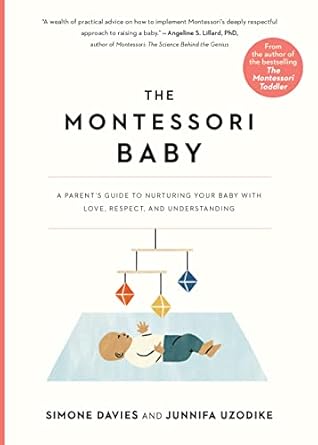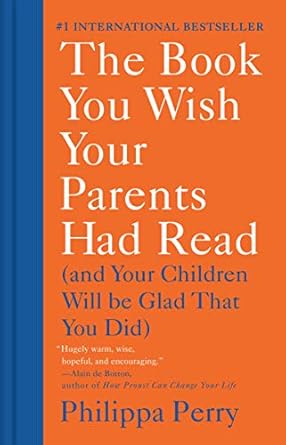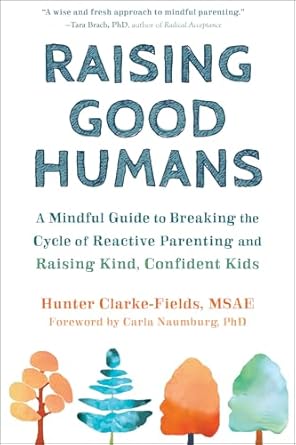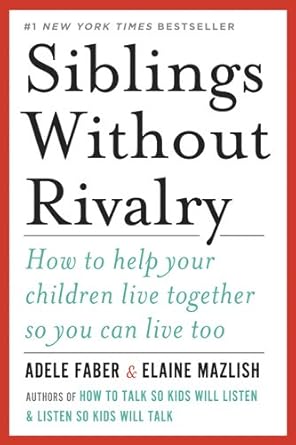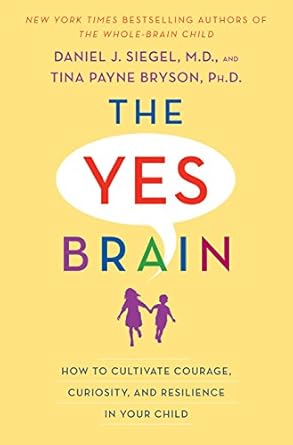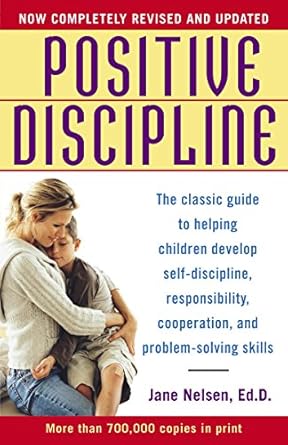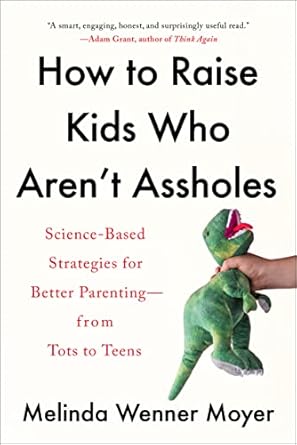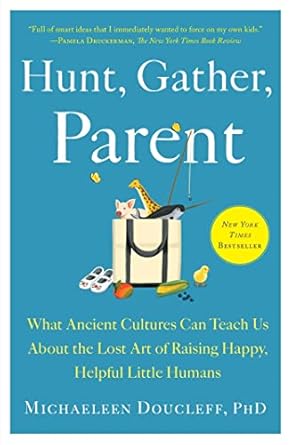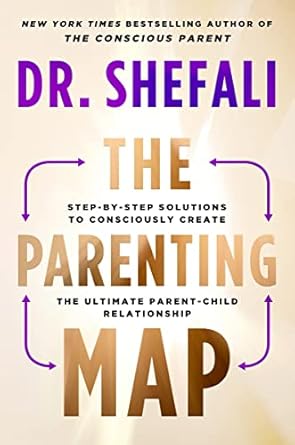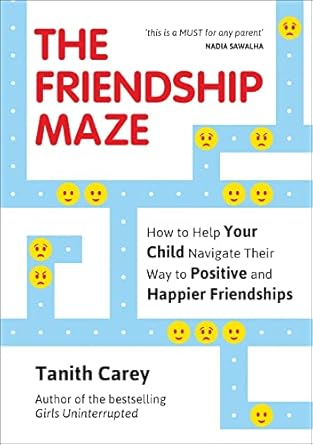Summary: In today's article, I have selected 20 of the best Parenting Books that can help make the journey of raising kids a little bit easier and more rewarding. Here are my top 3 favorites:
- The Whole-Brain Child by Daniel J. Siegel & Tina Payne Bryson
- No-Drama Discipline by Daniel J. Siegel & Tina Payne Bryson
- How to Talk So Little Kids Will Listen by Joanna Faber & Julie King
Parenting books are a great resource for anyone trying to navigate the ups and downs of raising kids. They offer expert advice, practical tips, and strategies to help you understand your child’s needs and development. Reading these books can help you connect with your kids on a deeper level, handle tough moments with confidence, and discover new ways to approach parenting. If you want to grow as a parent and gain fresh ideas for supporting your child, parenting books offer helpful guidance and reassurance.
TOP 20: Best Parenting Books
- The Whole-Brain Child by Daniel J. Siegel & Tina Payne Bryson
- No-Drama Discipline by Daniel J. Siegel & Tina Payne Bryson
- How to Talk So Little Kids Will Listen by Joanna Faber & Julie King
- What to Expect When You're Expecting by Heidi Murkoff
- Potty Training in 3 Days by Brandi Brucks
- Good Inside by Dr. Becky Kennedy
- Habits of the Household by Justin Whitmel Earley
- The Poo Poo Book by Mark Bacera
- Strong Mothers, Strong Sons by Meg Meeker
- The Montessori Baby by Simone Davies
- The Book You Wish Your Parents Had Read by Philippa Perry
- Raising Good Humans by Hunter Clarke-Fields
- Siblings Without Rivalry by Adele Faber & Elaine Mazlish
- Brain-Body Parenting by Daniel J. Siegel & Tina Payne Bryson
- Positive Discipline by Jane Nelsen
- How to Raise Kids Who Aren't Assholes by Melinda Wenner Moyer
- Hunt, Gather, Parent by Micah Mortali
- The Parenting Map by Shefali Tsabary
- The Friendship Maze by Tanith Carey
- Empire of Desire by Rina Kent
1. The Whole-Brain Child
- Author: Daniel J. Siegel & Tina Payne Bryson
- About: This book blends brain science with practical parenting techniques to help parents understand how children’s brains develop and how to nurture their emotional, cognitive, and social growth.
- Style of writing: Accessible, research-backed, and easy to follow.
- Length: 70,000–80,000 words
- Year written: 2011
- Emotional impact: Encourages a deeper connection with your child by understanding their brain development.
- Difficulty level: Easy to moderate
- Why read it: It’s a great tool for understanding your child’s behavior and how to respond in ways that nurture their growth.
2. No-Drama Discipline
- Author: Daniel J. Siegel & Tina Payne Bryson
- About: Focuses on using brain science to guide parents in responding to misbehavior calmly and effectively, promoting connection over punishment.
- Style of writing: Clear, empathetic, and informative with actionable tips.
- Length: 70,000–80,000 words
- Year written: 2014
- Emotional impact: Offers relief for stressed parents by offering practical and empathetic solutions.
- Difficulty level: Easy to moderate
- Why read it: It transforms discipline into a tool for teaching and connecting with your child.
3. How to Talk So Little Kids Will Listen
- Author: Joanna Faber & Julie King
- About: A guide to effective communication with young children, offering practical solutions to everyday parenting challenges.
- Style of writing: Engaging, straightforward, and full of relatable examples.
- Length: 55,000–65,000 words
- Year written: 2016
- Emotional impact: Empowers parents by offering simple tools to handle challenging moments with children.
- Difficulty level: Easy
- Why read it: It's incredibly helpful for improving communication with young children and reducing frustration.
4. What to Expect When You're Expecting
- Author: Heidi Murkoff
- About: A comprehensive guide for expectant parents, covering every stage of pregnancy with advice on health, emotions, and preparing for birth.
- Style of writing: Informative, reassuring, and supportive.
- Length: 150,000–160,000 words
- Year written: 1984
- Emotional impact: Provides comfort and reassurance to expecting parents, making them feel prepared and less anxious.
- Difficulty level: Easy
- Why read it: It's a go-to resource for anyone expecting a baby, providing reliable information from start to finish.
5. Potty Training in 3 Days
- Author: Brandi Brucks
- About: A step-by-step guide for parents looking to potty train their child in just three days.
- Style of writing: Practical, direct, and no-nonsense.
- Length: 25,000–30,000 words
- Year written: 2015
- Emotional impact: Can bring relief to parents anxious about potty training, offering a clear and achievable path.
- Difficulty level: Easy
- Why read it: It provides a fast and effective solution for parents who want to tackle potty training in a short period.
6. Good Inside
- Author: Dr. Becky Kennedy
- About: Offers a new approach to parenting that focuses on creating a calm, connected relationship with your child, prioritizing emotional intelligence over control.
- Style of writing: Compassionate, encouraging, and insightful.
- Length: 70,000–80,000 words
- Year written: 2021
- Emotional impact: Inspires parents to approach parenting with empathy and emotional awareness.
- Difficulty level: Easy
- Why read it: It challenges conventional parenting tactics and encourages a more emotionally connected approach.
7. Habits of the Household
- Author: Justin Whitmel Earley
- About: This book explores how daily family habits can shape your children's character and how parents can foster habits that cultivate love and faith.
- Style of writing: Thoughtful, reflective, and practical.
- Length: 50,000–60,000 words
- Year written: 2021
- Emotional impact: Encourages a sense of calm and purpose in daily family life.
- Difficulty level: Easy
- Why read it: It helps parents rethink their routines to intentionally build a strong family culture.
8. The Poo Poo Book
- Author: Mark Bacera
- About: A fun, light-hearted book for toddlers to learn about potty training through simple, engaging stories.
- Style of writing: Simple, playful, and engaging for young children.
- Length: 1,000–2,000 words
- Year written: 2015
- Emotional impact: Makes potty training a fun experience for kids and parents alike.
- Difficulty level: Easy
- Why read it: It makes potty training a less stressful and more enjoyable experience for young kids.
9. Strong Mothers, Strong Sons
- Author: Meg Meeker
- About: Focuses on how mothers can raise strong, confident, and emotionally healthy sons.
- Style of writing: Warm, supportive, and insightful.
- Length: 70,000–80,000 words
- Year written: 2016
- Emotional impact: Helps mothers gain confidence in their role and empowers them to raise strong sons.
- Difficulty level: Moderate
- Why read it: It offers specific advice on how to guide boys through childhood and adolescence in a healthy way.
10. The Montessori Baby
- Author: Simone Davies
- About: Provides a guide to applying Montessori principles to raising babies, focusing on respect, independence, and self-regulation from an early age.
- Style of writing: Gentle, reflective, and educational.
- Length: 50,000–60,000 words
- Year written: 2020
- Emotional impact: Creates a sense of mindfulness and calm in the parenting process.
- Difficulty level: Moderate
- Why read it: It introduces parents to Montessori principles, fostering independence and emotional intelligence in their children.
11. The Book You Wish Your Parents Had Read
- Author: Philippa Perry
- About: This book offers practical advice on how to understand and manage your child's emotions while improving your relationship with them.
- Style of writing: Conversational, approachable, and insightful.
- Length: 70,000–80,000 words
- Year written: 2019
- Emotional impact: Leaves a lasting impression on parents, emphasizing the importance of empathy and understanding.
- Difficulty level: Easy
- Why read it: It offers valuable insights into how to parent with emotional intelligence and build a deeper connection with your child.
12. Raising Good Humans
- Author: Hunter Clarke-Fields
- About: Focuses on mindfulness and conscious parenting, providing strategies to help raise kind, confident children.
- Style of writing: Calm, reflective, and practical.
- Length: 60,000–70,000 words
- Year written: 2019
- Emotional impact: Encourages parents to be more mindful and patient, leading to more harmonious family dynamics.
- Difficulty level: Easy
- Why read it: It offers effective tools to deal with challenging parenting moments and improve emotional regulation.
13. Siblings Without Rivalry
- Author: Adele Faber & Elaine Mazlish
- About: This book offers strategies for fostering cooperation and reducing conflict between siblings, improving family harmony.
- Style of writing: Practical, straightforward, and full of examples.
- Length: 50,000–60,000 words
- Year written: 1987
- Emotional impact: Helps parents feel empowered to reduce sibling rivalry and promote positive relationships.
- Difficulty level: Easy
- Why read it: It’s a great resource for anyone struggling with sibling conflicts, offering clear strategies for resolving issues.
14. Brain-Body Parenting
- Author: Daniel J. Siegel & Tina Payne Bryson
- About: Explores the connection between the brain and body in parenting, offering tools to improve both mental and physical well-being in children.
- Style of writing: Informative, grounded in neuroscience, and accessible.
- Length: 80,000–90,000 words
- Year written: 2021
- Emotional impact: Leaves a strong impression, focusing on the importance of supporting both the mind and body in child development.
- Difficulty level: Moderate
- Why read it: It provides new insights into the interconnectedness of physical and emotional growth in children.
15. Positive Discipline
- Author: Jane Nelsen
- About: This book offers a comprehensive approach to discipline based on mutual respect, focusing on positive reinforcement and building responsibility.
- Style of writing: Authoritative, supportive, and practical.
- Length: 80,000–90,000 words
- Year written: 1981
- Emotional impact: Provides lasting value with its emphasis on kindness, respect, and positive reinforcement.
- Difficulty level: Moderate
- Why read it: It offers timeless principles for raising well-behaved children while maintaining a strong, loving relationship.
16. How to Raise Kids Who Aren't Assholes
- Author: Melinda Wenner Moyer
- About: Offers modern strategies for raising empathetic, well-adjusted, and kind children in today’s world.
- Style of writing: Engaging, humorous, and straightforward.
- Length: 65,000–75,000 words
- Year written: 2021
- Emotional impact: Encourages parents to focus on building empathy and kindness in their children while reducing negative behaviors.
- Difficulty level: Easy
- Why read it: It's an engaging, practical approach to teaching kids the values of kindness and consideration.
17. Hunt, Gather, Parent
- Author: Micah Mortali
- About: Explores how ancient parenting practices can help modern parents raise happy, resilient children with a focus on connection to nature.
- Style of writing: Thought-provoking, reflective, and research-based.
- Length: 65,000–75,000 words
- Year written: 2021
- Emotional impact: Inspires parents to reconnect with simpler, more natural ways of parenting.
- Difficulty level: Moderate
- Why read it: It offers a refreshing perspective on how to raise well-adjusted children by looking to the past.
18. The Parenting Map
- Author: Shefali Tsabary
- About: Tsabary’s book offers a guide to conscious parenting, where the focus is on mindful, authentic connections rather than control and punishment.
- Style of writing: Thought-provoking, reflective, and insightful.
- Length: 60,000–70,000 words
- Year written: 2021
- Emotional impact: Deeply impactful, encouraging parents to shift their mindset to promote emotional and psychological well-being in their children.
- Difficulty level: Moderate
- Why read it: It offers powerful insights into transforming your parenting approach for more meaningful and connected relationships.
19. The Friendship Maze
- Author: Tanith Carey
- About: A practical guide to helping children navigate the complex world of friendships, social dynamics, and building emotional intelligence.
- Style of writing: Practical, empathetic, and advice-driven.
- Length: 50,000–60,000 words
- Year written: 2021
- Emotional impact: Helps parents feel more confident in supporting their child’s social and emotional growth.
- Difficulty level: Easy
- Why read it: It offers actionable advice to help kids navigate social challenges and build strong, positive friendships.
20. Empire of Desire
- Author: Rina Kent
- About: While this is a romance novel, it’s often referenced in conversations about parenting due to themes of relationships and emotional growth.
- Style of writing: Engaging, intense, and emotional.
- Length: 80,000–90,000 words
- Year written: 2021
- Emotional impact: Creates intense emotional connections with the characters, emphasizing themes of love and personal growth.
- Difficulty level: Moderate
- Why read it: It explores the complexity of relationships, which can be insightful for parents managing their own personal connections.
Conclusion
To wrap up, I think parenting books are a fantastic way to gain insight and support throughout your parenting journey. If you're looking for top recommendations, The Whole-Brain Child, No-Drama Discipline, and How to Talk So Little Kids Will Listen are, in my opinion, excellent choices. These books offer practical, research-based advice that can really help build stronger connections with your child, manage behavior more effectively, and communicate with empathy. Whether you're trying to improve discipline or just make everyday parenting a bit easier, I believe these books will be incredibly helpful.

